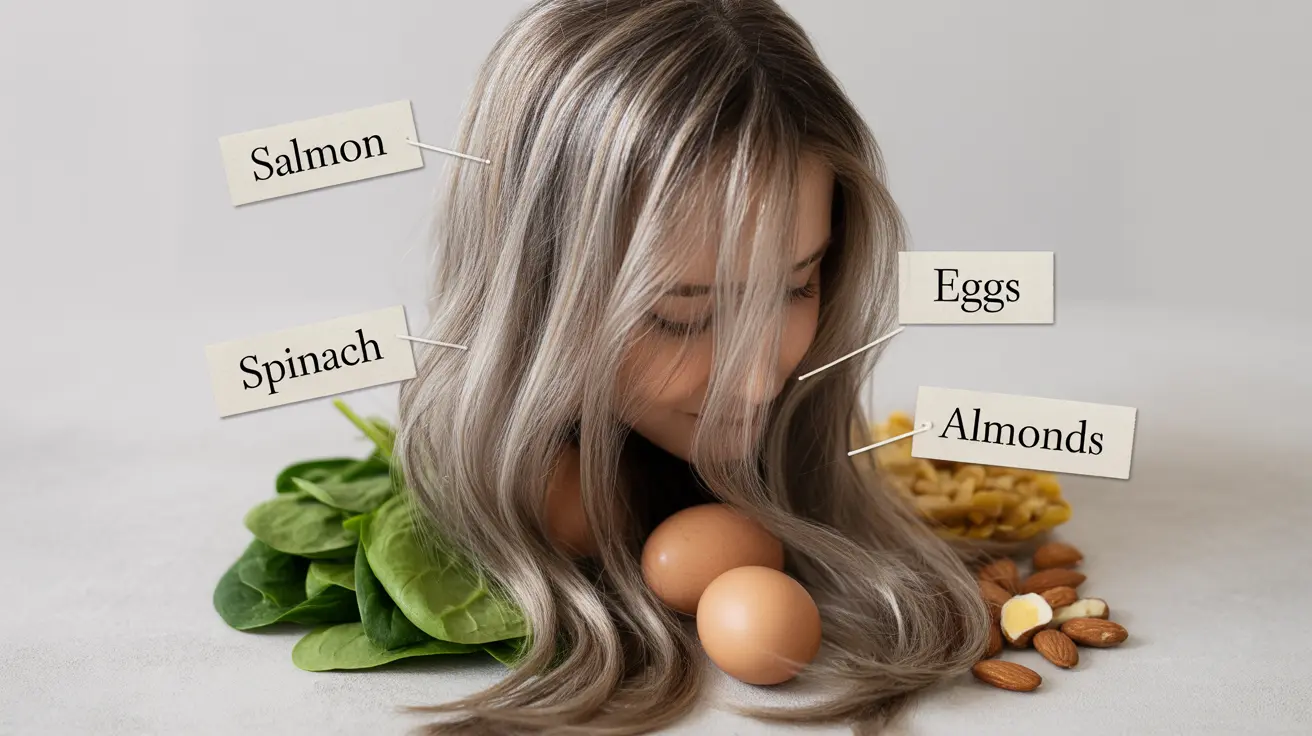Hair loss can be a distressing experience, and while many factors contribute to this condition, vitamin deficiencies play a significant role. Understanding the relationship between nutritional deficiencies and hair loss is crucial for maintaining healthy hair and identifying potential solutions.
In this comprehensive guide, we'll explore the vital nutrients your hair needs to thrive and how deficiencies can impact hair health, along with practical solutions to address these nutritional gaps.
Key Vitamin Deficiencies That Affect Hair Health
Several essential vitamins play crucial roles in maintaining healthy hair growth and preventing hair loss. Understanding these nutrients and their impact on hair health is the first step toward addressing potential deficiencies.
Vitamin D and Hair Loss
Vitamin D plays a vital role in hair follicle cycling and new follicle formation. Low vitamin D levels can lead to slower hair growth and increased hair shedding. Research has shown that people with alopecia often have significantly lower vitamin D levels compared to those without hair loss.
Iron Deficiency and Hair Health
Iron deficiency is particularly common among women and can significantly impact hair growth. This essential mineral helps carry oxygen to hair follicles, and without adequate iron levels, hair growth can become compromised, leading to increased shedding and thinning.
The Role of B-Vitamins
B-vitamins, especially biotin (B7), are crucial for healthy hair growth. While biotin deficiency is relatively rare, inadequate levels can contribute to hair thinning and brittleness. Other B-vitamins, including B12 and folate, also support healthy hair growth by promoting cell division and protein synthesis.
Identifying Nutritional Deficiencies
Common signs of vitamin-related hair loss include:
- Diffuse thinning across the scalp
- Increased daily hair shedding
- Brittle or dry hair texture
- Slow hair growth
- Changes in hair pigmentation
Prevention and Treatment Strategies
Dietary Modifications
A balanced diet rich in essential nutrients can help prevent and address vitamin-related hair loss. Focus on incorporating:
- Fatty fish for vitamin D and omega-3s
- Leafy greens for iron and folate
- Eggs and lean meats for protein and B-vitamins
- Nuts and seeds for zinc and healthy fats
- Fruits and vegetables for antioxidants
Supplementation Approaches
While diet should be the primary source of nutrients, supplements may be beneficial when deficiencies are confirmed through blood tests. Always consult with a healthcare provider before starting any supplementation regimen.
Frequently Asked Questions
Which vitamin deficiencies are most commonly linked to hair loss?
The most common vitamin deficiencies linked to hair loss include vitamin D, iron, biotin (vitamin B7), and other B-vitamins. Zinc deficiency, while not a vitamin, is also frequently associated with hair loss.
How can I treat hair loss caused by vitamin D deficiency?
Treatment typically involves vitamin D supplementation under medical supervision, increased sun exposure (safely), and consuming vitamin D-rich foods like fatty fish, egg yolks, and fortified products. Regular monitoring of vitamin D levels is essential during treatment.
Is iron deficiency a common cause of hair loss in women, and what are some ways to increase iron levels?
Yes, iron deficiency is particularly common in women and can significantly impact hair health. To increase iron levels, consume iron-rich foods like lean red meat, spinach, and legumes. Iron supplements may be necessary in some cases, but should only be taken under medical supervision.
Can biotin supplements help with hair thinning and loss if I have a deficiency?
Biotin supplements may help improve hair growth in cases of confirmed biotin deficiency. However, true biotin deficiency is rare. It's important to confirm a deficiency through testing before starting supplementation, as excessive biotin can interfere with certain medical tests.
What dietary changes can help prevent hair loss due to nutritional deficiencies?
Focus on consuming a balanced diet rich in lean proteins, whole grains, fruits, vegetables, and healthy fats. Include foods high in iron, vitamin D, B-vitamins, and zinc. Consider Mediterranean diet principles, which naturally incorporate many hair-healthy nutrients.




